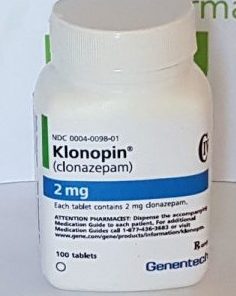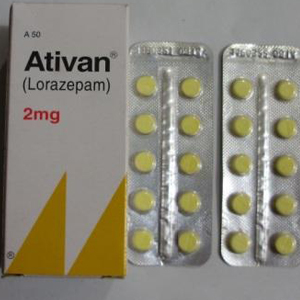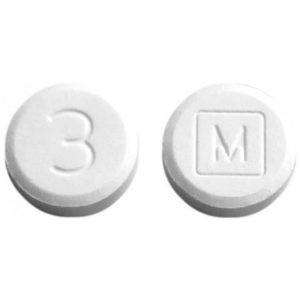Online, you can buy Klonopin 2 mg pills for sale at a low price.
Klonopin is a true elixir that will help you deal with your problems. It will also make you feel better.
Klonopin is a benzodiazepine sedative and anticonvulsant, and it can help people relax and stop having seizures. It is mostly used to treat anxiety disorders, like panic disorder.
Take a closer look at the Klonopin now.
Klonopin is the only benzodiazepine that the FDA has approved to treat panic disorder. A lot of people use Klonopin to treat anxiety, agitation, acute mania (in combination with other drugs), and to stop seizures quickly. Use: It is used as a long-term anticonvulsant drug, like a sleeping pill, to treat nerve pain.
They may be calm, maybe high, and a little tired after taking Klonopin. Side effects vary from person to person and are based on how much you take. In most cases, Klonopin is given twice a day, for about 0.25 mg to 2 mg. People with epilepsy can take up to 20 mg a day.
This is how Klonopin works: It affects the neurotransmitter GABA, which is an antidote. Because Klonopin does so many things at once, it slows down the brain by reducing the ability of nerves to send impulses. As a result of less activity, people become less anxious, and the chance of having a seizure also goes down.
In medicine, Klonopin is used to treat seizures and panic attacks. It can also be used as a hypnotic to treat anxiety disorders, panic disorder, and pain. Taking benzodiazepine will help stop the seizure and bring brain activity back to normal. This can also help with pain, especially neuropathic pain, because it makes it hard for neurons to send pain signals, which makes them less sensitive.
Things to talk about with the doctor before taking Klonopin
You should tell your doctor if you:
At least one of these conditions:
• problems with the liver
• alcohol or drug abuse, either current or in the past;
People who have asthma, bronchitis, emphysema, or other respiratory illnesses;
• sadness or thoughts of suicide.
A lot of people who have the diseases above can’t take Klonopin, or they will need to take a lower dose of the drug and get checked out by their doctor.
If you are over 60, the chances of having side effects from the medicine are very high. Because of this, your Klonopin dose should be changed based on your health.
To Use:
Klonopin should only be taken in the way that a doctor tells you to. Contact your doctor or pharmacist for advice on how to use it. When you take the pill, you should drink the whole thing. Do not take more than your doctor told you to. Before you finish taking the product, talk to your doctor.
Take a look at what happens when you take too much medicine.
In the case of an overdose, call a doctor right away.
Signs of an overdose:
drowsiness, dizziness, confusion, a slow heartbeat, alcohol-like symptoms, and loss of consciousness are all signs of alcoholism.
If someone takes too much of the drug, gastric lavage and treatment for side effects are done.
When you drive, use machinery, or do other work that could be dangerous, be careful.
In the case of drowsiness or dizziness, you should not do these kinds of things.
Alcohol should not be mixed with Klonopin. Alcohol makes Klonopin more likely to cause serious side effects. As a result, there is a greater chance of having seizures as well.
Klonopin has what?
allergy: shortness of breath, swelling of the lips, face, tongue, or rash
There is also a chance that other, less serious side effects will show up.
Continue taking the drug and tell your doctor if you have:
Sleepiness; dizziness or awkward movement; depression; lightheadedness, nausea, diarrhea or constipation; difficulty urinating, nightmares, headaches, dry mouth, a drop in sexual desire, and changes in behavior are all signs of depression.
Dosage and how it’s done
Klonopin therapy starts with small doses and gradually increases them to get the best results. Because each person has a different condition and body reaction to taking a drug, the dosage is tailored to his needs. The most common Klonopin dose is 0.5 mg three times a day. If the therapeutic effect is not achieved, the dose can be increased every third day of the therapy until it is.
When the drug is taken in high doses, especially over a long period of time, it can cause problems with articulation, diplopia, nystagmus, paradoxical reactions (such as sudden arousal), and anterograde amnesia. A few times a person has a hypersensitivity reaction, muscle weakness, or depression. People with some types of epilepsy may have more seizures if they get treatment for a long time.







